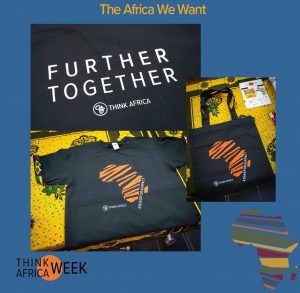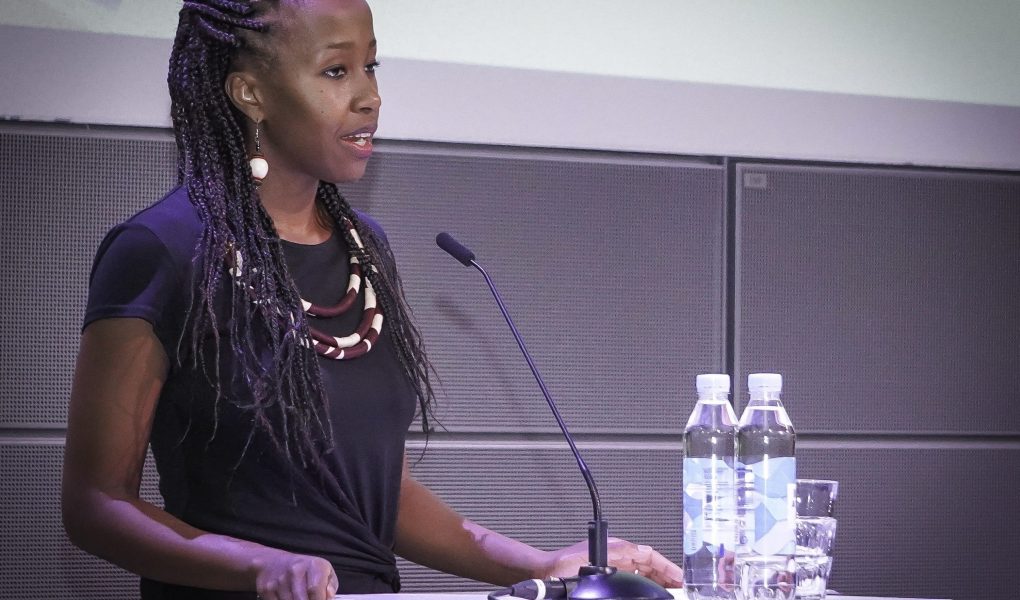It is with great honour that I write the last interview of the year. 2020 has been challenging for the economy across the globe and non-profit organisations have been hit hard by the pandemic. Now, more than ever before, leaders’ ability to see their organisation through tough periods is put to test. In this short story I will share with you what I learned from Dr Myriam Munezero, chairperson of Think Africa.
Start where you are
When I asked Myriam what pulled her to create Think Africa and what were her first steps, the answer surprised me. She actually did not create it. The entity is rooted in what was a student group at university back in 2013. From there, it became a registered non-profit in 2014. As is the case with many organisations made of students, once they graduate, they tend to move either to pursue further studies or look for jobs in other places. As a result, the organisation will either die or remain somewhat stagnant. It was precisely when things were not going so well that Myriam became a member of Think Africa, in 2018. It did not take long for the other members to notice her leadership skills because they elected her as a chairperson only after a year of her joining.
I sometimes think that we want to become leaders in government or big institutions, at some undetermined time in the future and, by some sort of magical happening, without starting where we are or where we are most needed. If you want to become a leader, it is key that you identify how to solve a problem for others in your immediate entourage because that is what will make up the foundation of your leadership. From that point onwards, you can only get better as a leader and the kind of drive you bring will impact your team positively. Starting where you are and with what you have is possible and achievable. The following is how Myriam did it, step by step.

“My focus for the first year was to increase the membership and activity level of the organisation. This included also assigning tasks and responsibilities to the new Board that was just elected. In that first year, we organised close to 16 events compared to the one event that was organised in the prior year. The goal was to have the organisation become visible again and discover its role in the community. This also meant putting a lot of effort on marketing and branding, we revamped the organisation website and logo, to make them more fresh and modern. As an immigrant focused organisation and with the existing perceptions of Africans and Africa, I found it important for us to put a lot of effort in the organisation’s appearance as a professional entity. Not only in appearance, but how we conducted ourselves and organised our activities. Of course, this is a continuous process, and we are revising and defining our marketing and branding strategy and investing more resources into it.
This is my third year as the Chair and my focus in 2020 has been on strengthening our strategy and creating processes for several functions such as funding, events management, marketing, outreach, community management, and more. This strategy will help us going forward in anchoring us and guiding us in our short- and long-term activities and partnerships.”
It is going to be challenging
On top of the responsibilities that come with a position of leadership, there are additional challenges that leaders face. You must motivate your team and most times without them noticing, you must encourage people in such a way that you keep them from stagnating or become overdemanding, keep your enthusiasm and do all the above day after day, year after year. Every leader must eventually experience aspects of leadership challenges. What makes a good leader, though, is the ability to overcome these challenges and still lead your team to meet the goals you set for yourself.
The following is what Myriam had to say about facing challenges.
“Challenges have been many and are part of the journey but the challenge I am facing now and tackling with the current Board is ensuring we do not have volunteer burnout. The organisation from the beginning has been fully volunteer based, but this is not sustainable in the long term, not if we want to achieve our strategic goals and vision of being a place where the potential of the African diaspora is realised. We are tackling this challenge by defining functions in the organisation that are critical and cannot be volunteer based anymore plus strategically applying for funding to support the implementation of activities. This process, though, has to be carried out strategically and transparently. We also have to then make the volunteer opportunities also transparent and easy for our members.”
As a leader, myself, I sometimes wonder if there will be a time when things will run smoothly. I say to myself: ‘perhaps if we had more volunteers or secured more funding…’ and then I am reminded that no matter what stage you are at in your organisation or project, leadership comes with challenges. What has personally helped me is to be in conversation with other leaders and to work with mentors.

Keep going, it will get better
It is no secret that when you keep at it and do the work, you will eventually begin to see the fruits of your effort. Even if the results are not what you expected, you will have gained experience which will contribute to perfecting whatever it is you want to do next. The results at Think Africa are visible to anyone who reads their website or follows their activities on social media, but I wanted to know more about how they viewed their progress and best achievement thus far.
“Having a platform where our members can create and be involved in projects of their interest, receive support from a driven team to make their ideas come true, and find like-minded people where they learn new things, gain information and find inspiration. In addition, the organisation is starting to be a key player in matters that concern the African diaspora where we are invited to consult on issues that affect the community, or share essential information. This also includes increased collaboration with other like-minded African and Finnish organisation in the public and private sector.
Our flagship event, Think Africa Week, which we organised on 14-20th November, reached over 15000K people across the world.”
For an outsider, it is difficult to quantify how many hours of work were put in Think Africa from the days it was a student group to what the organisation has become. What is certain, however, is that every effort and every set back contributed to the Think Africa we see today.
What prospect then, for 2021? “at Think Africa, we welcome all who find our mission to become members and are given the opportunity to lead activities and be members of the Board. Read more on our website and we also welcome support from anywhere which will go to our newly launched youth-focused activities for 2021.” -said Myriam.
To fellow female leaders, be bold!
At Femmes d’Espérance, we pride ourselves in writing inspiring stories. What better way to end 2020 if not with a piece of advice, from Dr Myriam Munezero, for those who are or aspire to be in leadership positions?
“My advice for women who want to be in leadership positions would be to just be bold enough or to challenge themselves to try it, even if you might feel like you do not have the right skills or you are not there yet, the best place to prepare to be a leader is to be in that position. Here I will quote the title of Sheryl Sandberg’s book and say, just “Lean In”. Once you are there, take the time to work on your skills. Strategic thinking, being able to see the big picture of things and a problem solver, and being a people person, have been the skills I have had to use the most and have worked on developing. Don’t be afraid to experiment and take calculated risks.”
By Josephine Ma



